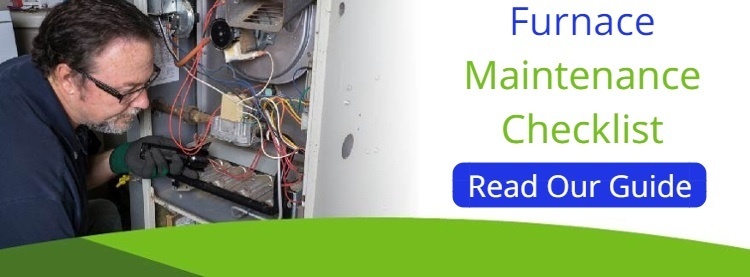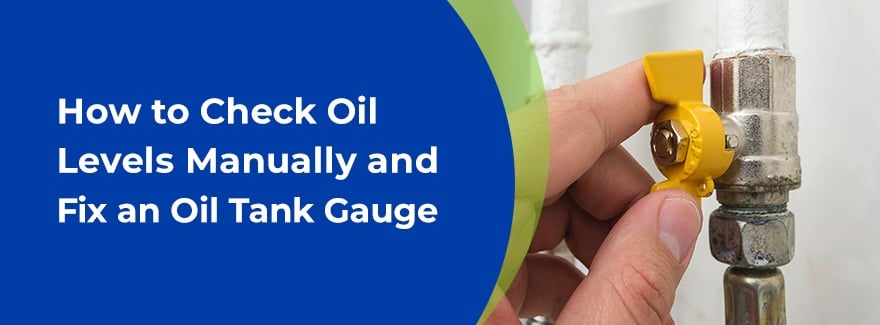Your home's heating, ventilation and air conditioning (HVAC) system needs regular maintenance all year long. When you keep up with your air conditioner and furnace, you can save money on your utility costs and have a more reliable unit. This guide will explain the importance of annual HVAC maintenance and help you develop a plan for how to take care of your heating and cooling appliances each season.
Smart Touch Energy

Recent Posts
Topics: heating systems, air conditioning, fall fun
The air inside your home could be two to five times more polluted than the air outdoors due to dust, pet dander, cleaning products and bacteria. Low indoor air quality (IAQ) can worsen allergies and upper respiratory conditions, and a moist environment can keep mold and bacteria in your living space, increasing your potential for getting sick. Since you spend a lot of time at home, it is beneficial to consider ways to improve the air you and your family inhale each day — and one way is with the help of your heating, ventilation and air conditioning (HVAC) system.
Topics: heating systems
How to Sanitize Your HVAC System and Prevent the Spread of Germs at Home
Everyone wants to be healthy and keep their family healthy. However, not everyone realizes the risk that HVAC-borne germs can pose for their loved ones. Efforts to combat HVAC germs in hospitals have drawn media attention because antibiotic-resistant germs have begun to appear in the air in hospitals and because hospitals are designed to house people who are sick and thus contagious.
Topics: air filteration, air conditioning
Are you ready for autumn? Although you've already packed up your summer clothes and set up your fall decorations, there's still much to do to prepare for the colder temperatures that accompany the season. Even though cold temperatures are right around the corner, many homeowners ignore fall furnace maintenance. In fact, fall furnace maintenance is exceedingly important, because no homeowner wants to be without heat on a chilly autumn night.
Topics: heating systems
Millions of American homes rely on heating oil to keep them warm during colder months. Heating oil, also known as fuel oil No. 2, has a distinct oil smell, but in most cases, it is well-contained. That means you typically won't notice the smell at all, or will only catch a faint whiff just after getting your tank refilled. When you note a strong oil odor, it is probably due to a more severe issue such as a spill.
Topics: heating oil
As winter comes to an end and we start moving into the warmer spring months, most people aren't thinking about their heating oil levels or when they need to place an order to replenish the supply the used during the cold winter months. Today, companies transport more than 3.2 billion gallons of heating oil to homes in the Northeast every single year. Where does all that heating oil come from and how does it get to your house?
Topics: heating oil
Winter energy bills can send us running for cover. Specifically blanket covers, because it's cold and because we want to hide from the number on our statement.
For many homes in the United States, an oil furnace is the preferred source of heat. As a natural source of warmth, an oil furnace can provide well-distributed warmth throughout all the rooms in a house. For the furnace to work when you need it most, you must have it serviced at least once per year. The following reasons best summarize the importance of furnace maintenance.
Topics: heating oil, heating systems, inspection
As the weather gets colder, your home must have plenty of heating oil in the oil tank. The best way to avoid running dangerously low on heating oil is to monitor the level in your tank regularly. You can do this by consulting your oil tank gauge and conducting manual inspections of your oil level with a gauge stick.
- Understanding Your Oil Gauge
- How to Manually Check Your Heating Oil Level
- At What Level Should I Have My Oil Tank Refilled?
- How to Tell If Your Oil Tank Gauge Is Broken
- The Problem With a Broken Oil Tank Gauge
- How to Fix a Broken Oil Tank Gauge
- Schedule Automatic Heating Oil Delivery With Smart Touch Energy
Topics: heating oil, oil tanks
No one enjoys paying higher home heating bills during an unusually cold winter or spending the extra money on increased electric bills due to the hot summer months. As expensive as monthly energy costs are for homeowners, however, they generally represent a more significant expenditure for businesses with large facilities.
Topics: energy tips












